Forest fires are frightening things. But this experiment in time-lapse and fire turned out to be mesmerising. This fire, unlike other fires around the country, has not threatened homes or lives. It is burning primarily in wilderness, but many beetle killed trees are fueling a hot fire that moves quickly.
Dollar Lake complex fire in the Mount Hood National Forest.
Tuesday, September 06, 2011
Monday, September 05, 2011
Jungle Aethsetic
One of my favorite old movies is the 1933 version of King Kong. It has all the ingredients of a great adventure film, and audiences were stunned at the visual effects. They might look dated to the modern eye, but in the context of its time it remains quite an accomplishment.
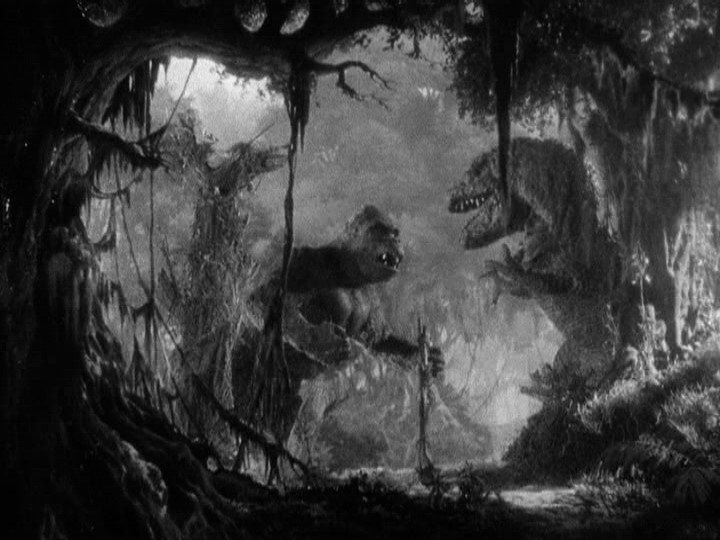
Why am I writing about this? Even as a child, I was fascinated with the depiction of the jungle in this movie. Created on studios, back lots, or in miniatures - the forest is depicted as a etherial, mysterious and dangerous place.
When I was in Ecuador recently I was struggling to come up with a new or interesting perspective on the rain forest. The locations were interesting and gorgeous but had been photographed hundreds of times before. What could I do the was new?
I opted for something old. With a few simple filters applied in Photoshop, I took the original photos and added grain and optical imperfections. It is debatable if doing this has any merit, and it might have been more "honest" to have taken the photos with a Holga camera on black white film. But in truth, I like the results. And these images remind me a great deal of the fanciful locations found in the 1933 version of King Kong.
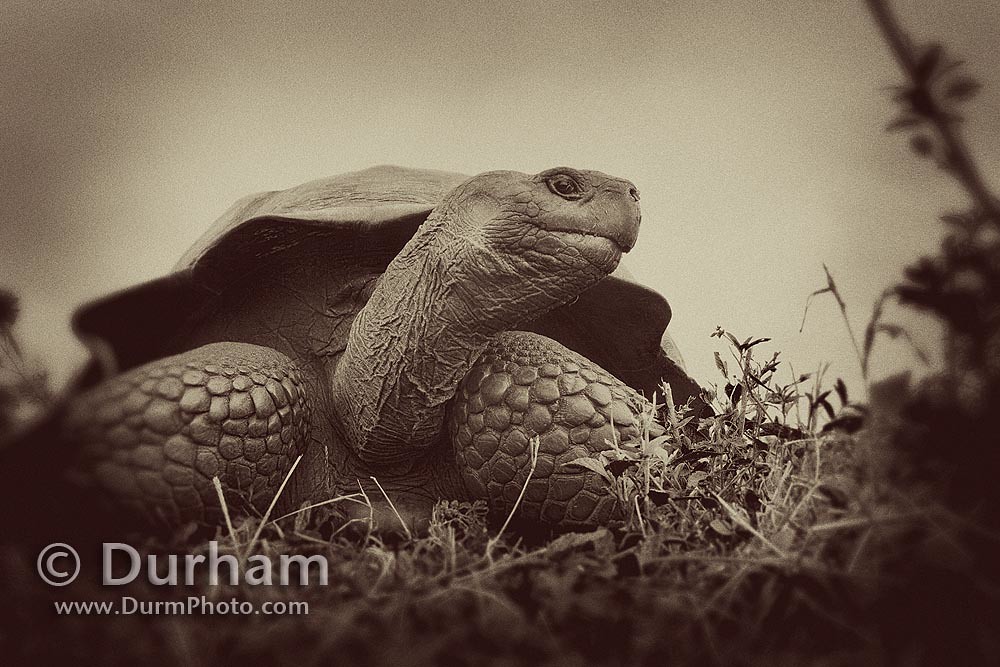
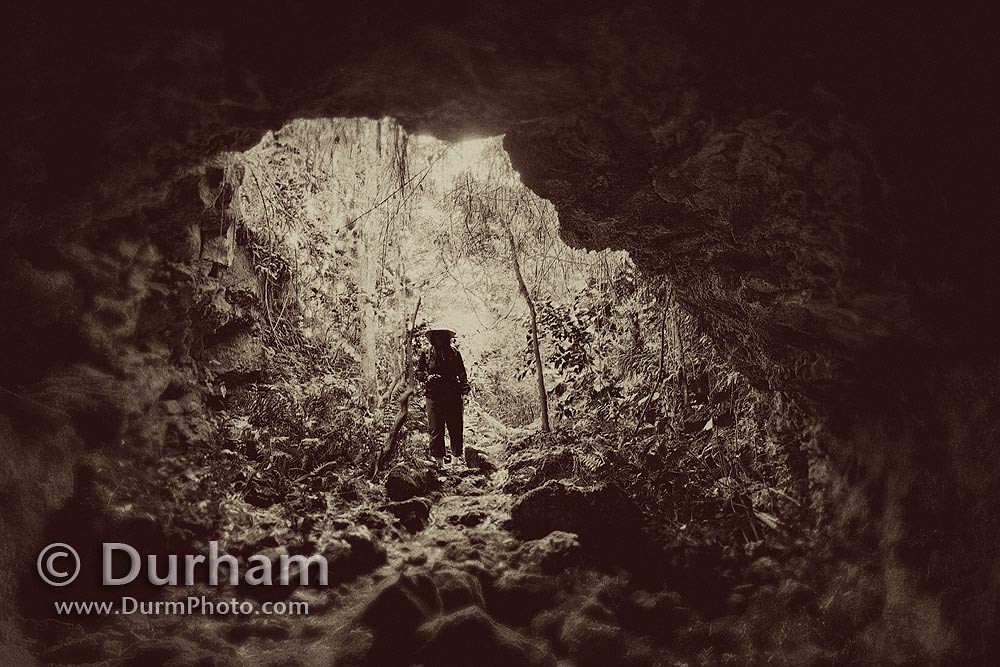

Why am I writing about this? Even as a child, I was fascinated with the depiction of the jungle in this movie. Created on studios, back lots, or in miniatures - the forest is depicted as a etherial, mysterious and dangerous place.
When I was in Ecuador recently I was struggling to come up with a new or interesting perspective on the rain forest. The locations were interesting and gorgeous but had been photographed hundreds of times before. What could I do the was new?
I opted for something old. With a few simple filters applied in Photoshop, I took the original photos and added grain and optical imperfections. It is debatable if doing this has any merit, and it might have been more "honest" to have taken the photos with a Holga camera on black white film. But in truth, I like the results. And these images remind me a great deal of the fanciful locations found in the 1933 version of King Kong.


Labels:
cave,
galapagos tortoise,
jungle,
jungle cave,
king kong,
rainforest
Friday, January 28, 2011
Bat Size Comparison
Watching bats flit about the night sky, it can be very hard to get a good impression about their color, shape and size. From the last few posts I posted images of three species separately, but here they are in comparison to one another. I think this illustrates well the remarkable variation among bats.
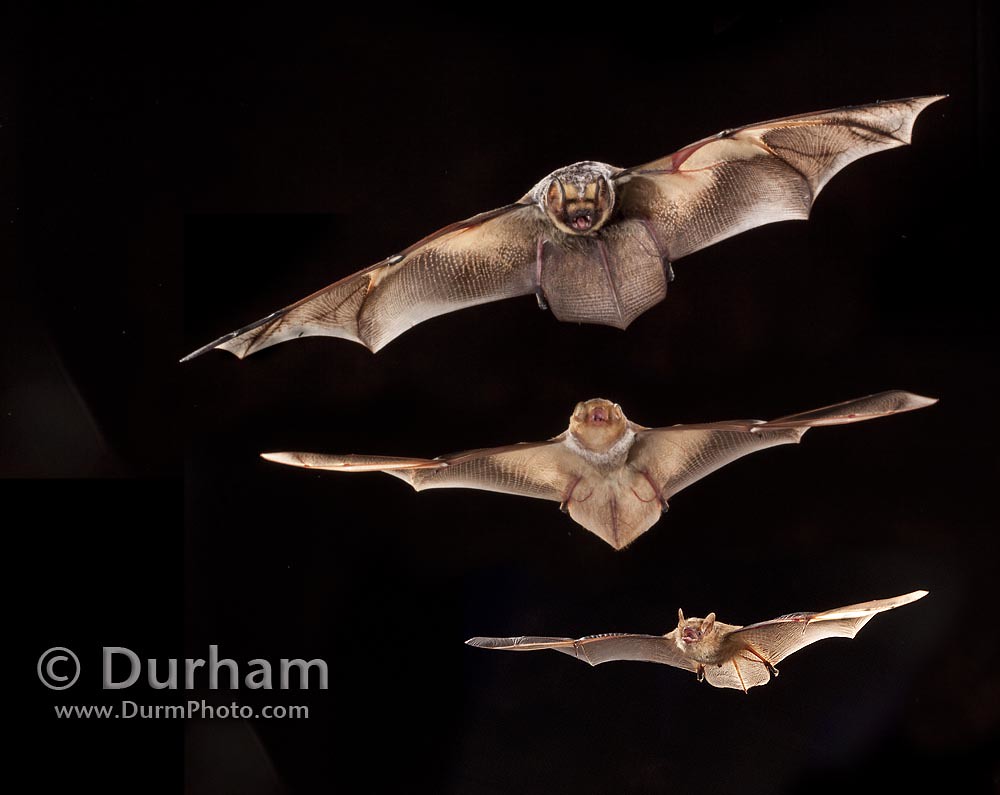
A male hoary bat (Lasiurus cinereus) (top) is considerably larger than a female eastern red bat (Lasiurus borealis) (middle) and a tricolored bat (Perimyotis subflavus). Photographed near the Conasauga River in the Chattahoochee National Forest, Georgia.

A male hoary bat (Lasiurus cinereus) (top) is considerably larger than a female eastern red bat (Lasiurus borealis) (middle) and a tricolored bat (Perimyotis subflavus). Photographed near the Conasauga River in the Chattahoochee National Forest, Georgia.
Thursday, January 27, 2011
Hoary Bat (Lasiurus cinereus)
Photographed while I was in the Chattahoochee National Forest near the Conasauga River, Georgia. I have photographed hoary bats before on the West coast where they are much more common. This male was particularly beautiful however.
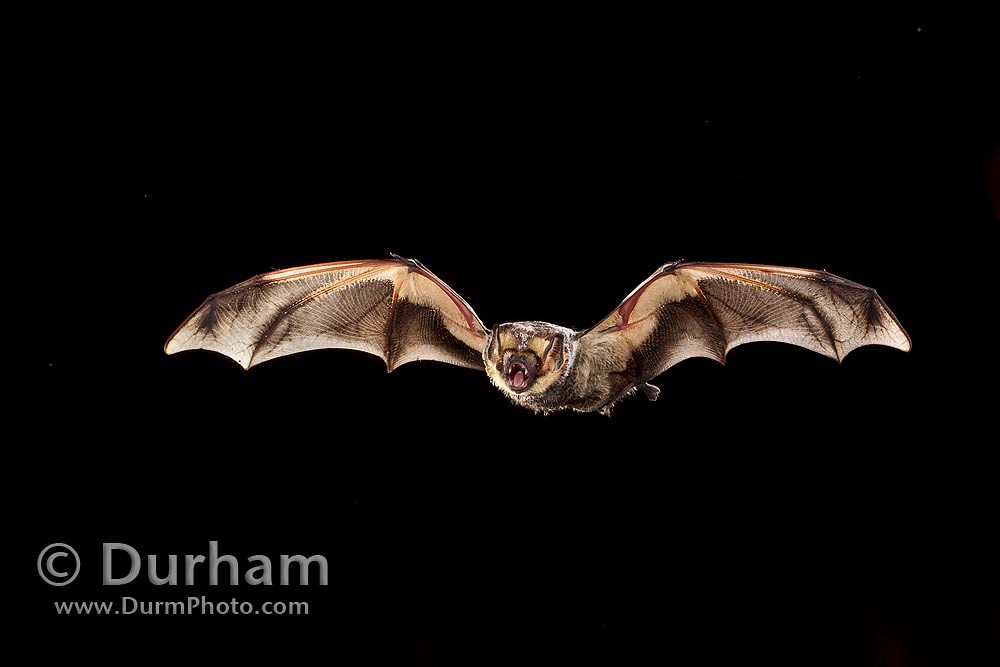
hoary bat (Lasiurus cinereus)
a href="http://www.flickr.com/photos/oregonwild/4892788840/" title="hoary bat (Lasiurus cinereus) by Michael Durham, on Flickr">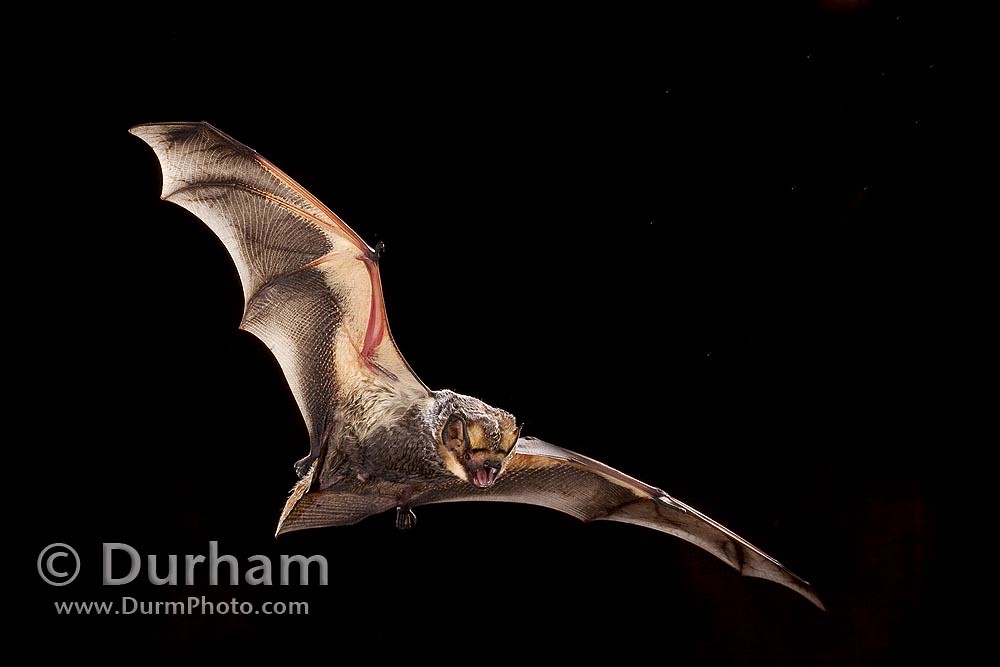
hoary bat (Lasiurus cinereus)
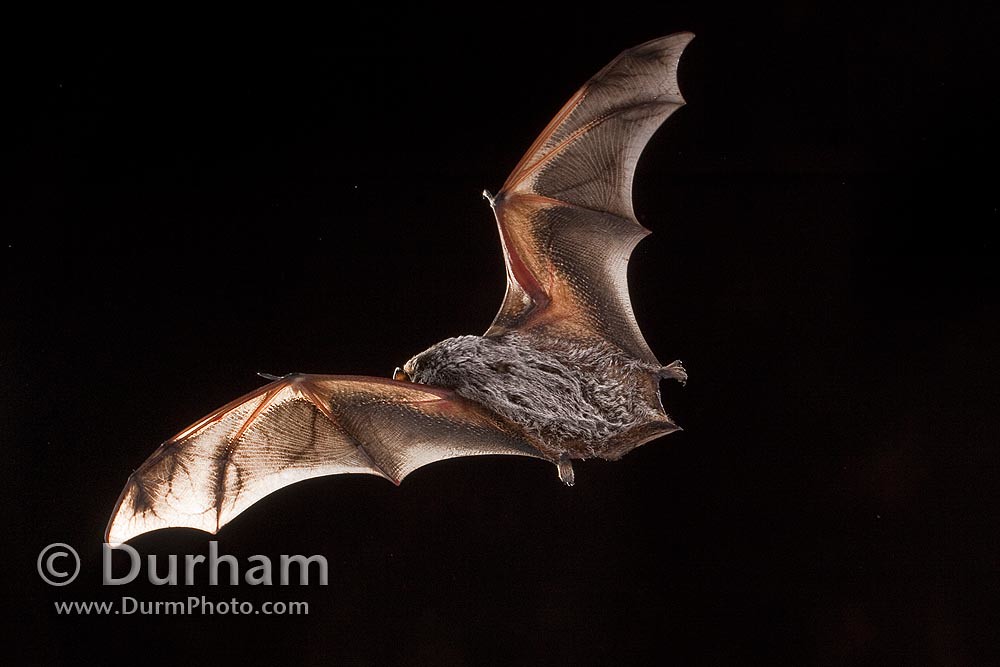
hoary bat (Lasiurus cinereus)

hoary bat (Lasiurus cinereus)
a href="http://www.flickr.com/photos/oregonwild/4892788840/" title="hoary bat (Lasiurus cinereus) by Michael Durham, on Flickr">

hoary bat (Lasiurus cinereus)

hoary bat (Lasiurus cinereus)
Wednesday, January 26, 2011
Tricolored Bat (Perimyotis subflavus)
Taxonomy with any species can get confusing, but it can be really challenging when one species is reclassified into another. There are usually excellent reasons for doing so which typically involve a close genetic study of the animal that reveals new information about its lineage and interrelatedness to other species.
Case in point: Tricolored bat (Perimyotis subflavus) formerly the eastern pipistrelle (Pipistrellus subflavus). Most everyone I know still calls these little bats "the Eastern pip".
To quote wikipedia: Although traditionally considered a member of the genus Pipistrellus, a growing body of evidence suggests that the Eastern Pipistrelle is only distantly related to the pipistrelles proper. Hoofer and Van Den Bussche (2003) found the Pipistrellini (containing Pipistrellus s.s., Nyctalus, and Scotoecus) sister to the Vespertillionini. Both the Eastern and Western Pipistrelle were outside of this clade. They suggest that the Eastern Pipistrelle be removed from the genus Pipistrellus and placed in its own genus, Perimyotis.
And thus it was
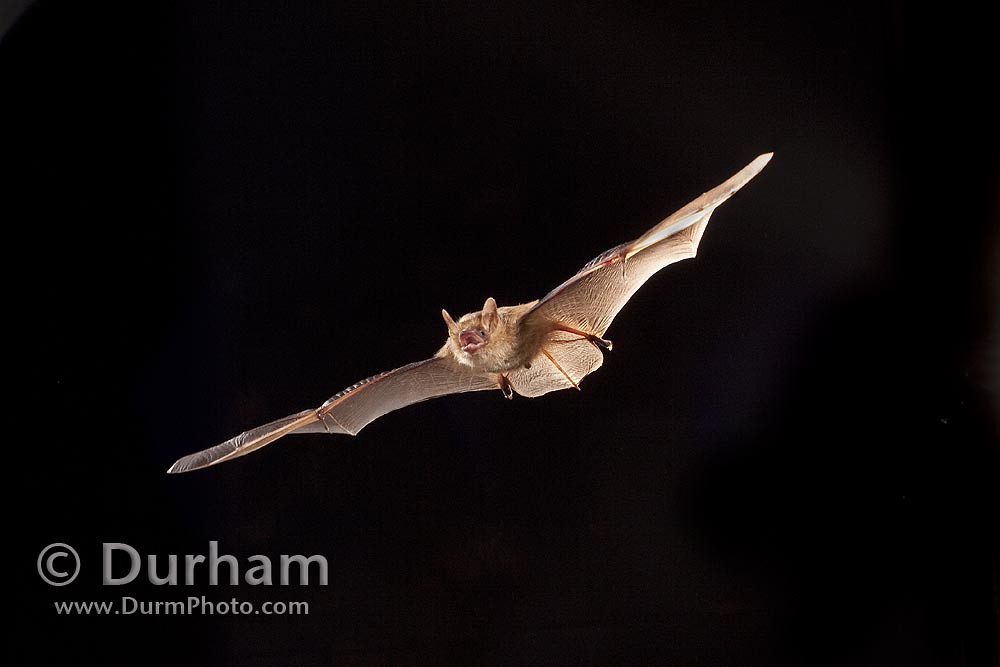
Tricolored Bat (Perimyotis subflavus)
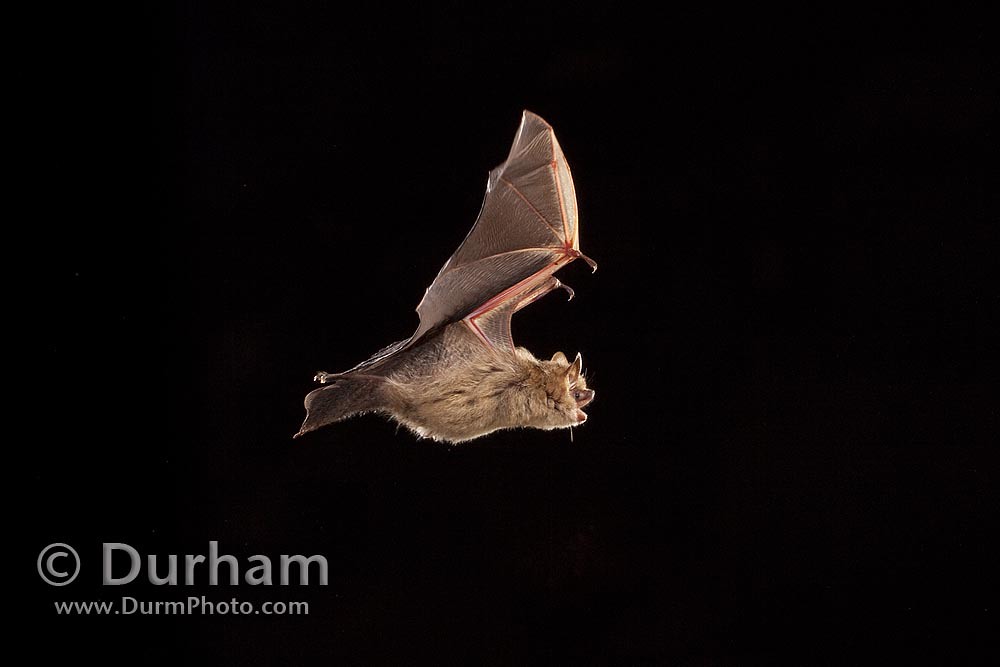
Tricolored Bat (Perimyotis subflavus)
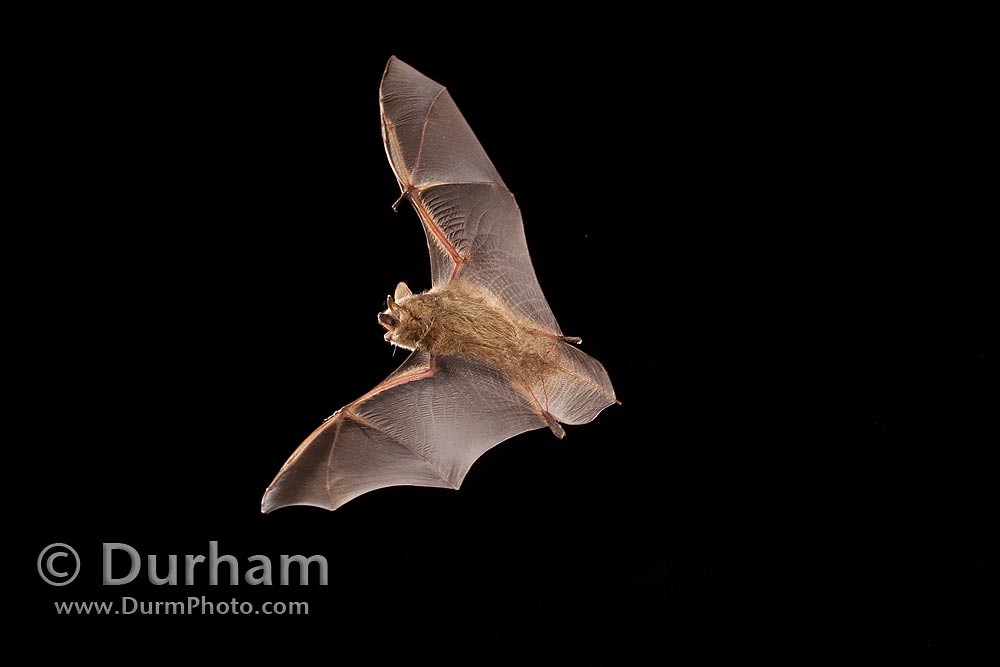
Tricolored Bat (Perimyotis subflavus)
Jerry Coyne writes about the species classification debate with a post about elephants here: http://whyevolutionistrue.wordpress.com/2011/01/02/how-many-species-of-elephant/
Case in point: Tricolored bat (Perimyotis subflavus) formerly the eastern pipistrelle (Pipistrellus subflavus). Most everyone I know still calls these little bats "the Eastern pip".
To quote wikipedia: Although traditionally considered a member of the genus Pipistrellus, a growing body of evidence suggests that the Eastern Pipistrelle is only distantly related to the pipistrelles proper. Hoofer and Van Den Bussche (2003) found the Pipistrellini (containing Pipistrellus s.s., Nyctalus, and Scotoecus) sister to the Vespertillionini. Both the Eastern and Western Pipistrelle were outside of this clade. They suggest that the Eastern Pipistrelle be removed from the genus Pipistrellus and placed in its own genus, Perimyotis.
And thus it was

Tricolored Bat (Perimyotis subflavus)

Tricolored Bat (Perimyotis subflavus)

Tricolored Bat (Perimyotis subflavus)
Jerry Coyne writes about the species classification debate with a post about elephants here: http://whyevolutionistrue.wordpress.com/2011/01/02/how-many-species-of-elephant/
Tuesday, January 25, 2011
Bat Dimorphism
Male and female bats often have the same physical appearance (to human eyes at least). However the eastern red bat mentioned in the previous post is noted for having an easy clue for gender - the males tend to be more red than the females.
This can be a subtle difference, or a dramatic difference. One biologist I spoke to felt that the male bats probably develop a deeper red as they mature and get older.
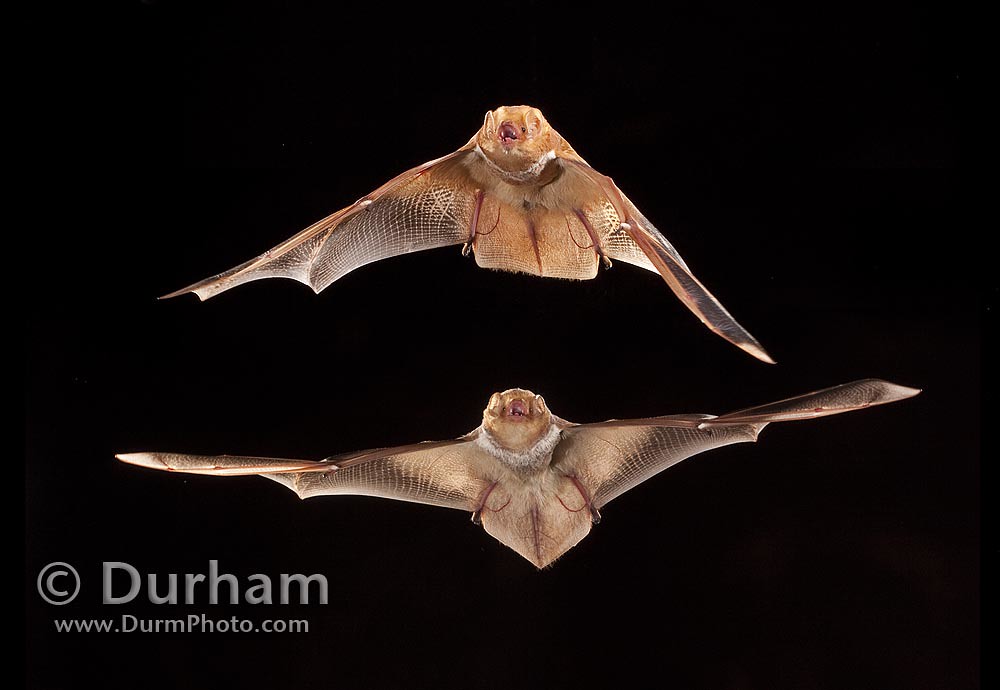
male (top) and female eastern red bat (Lasiurus borealis)
This can be a subtle difference, or a dramatic difference. One biologist I spoke to felt that the male bats probably develop a deeper red as they mature and get older.

male (top) and female eastern red bat (Lasiurus borealis)
Labels:
dimorphic,
dimorphism,
eastern red bat,
flying mammal,
Lasiurus borealis
Monday, January 24, 2011
The Beautiful Eastern Red Bat (Lasiurus borealis)
This particular bat is not really uncommon, but I have been looking to photograph one for years and years. Lovely, graceful, and not terribly friendly! Like all bats they prefer to be left to themselves when it comes to human interaction.
The image of the red bat roosting on a tree limb was especially hard to obtain. This little male would land for about three seconds (just enough time to barely get into focus) and then take of before I could press the shutter!
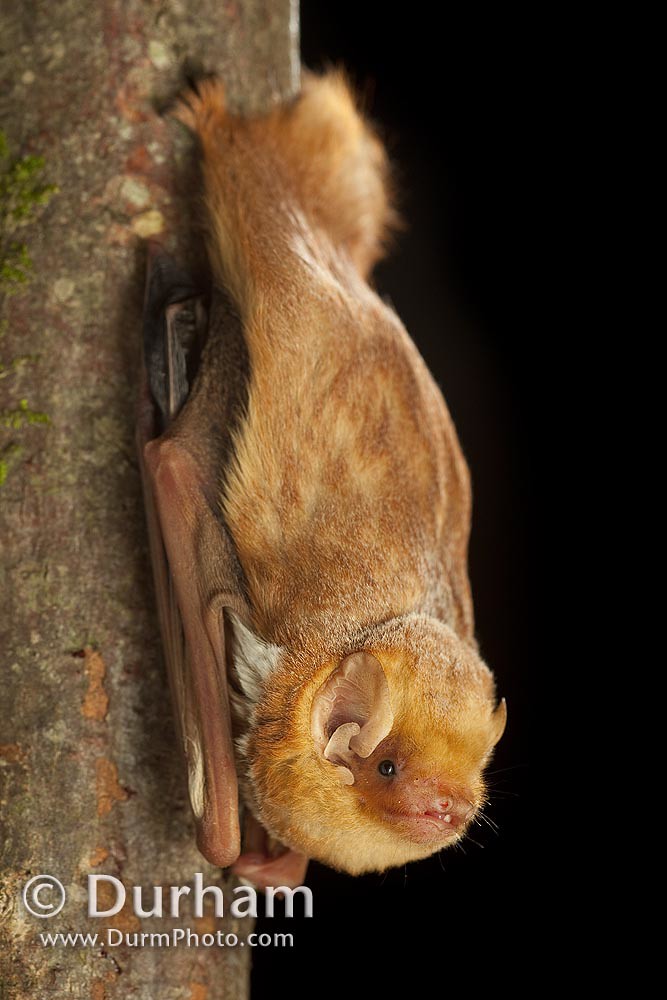
eastern red bat (Lasiurus borealis) roosting on a tree limb
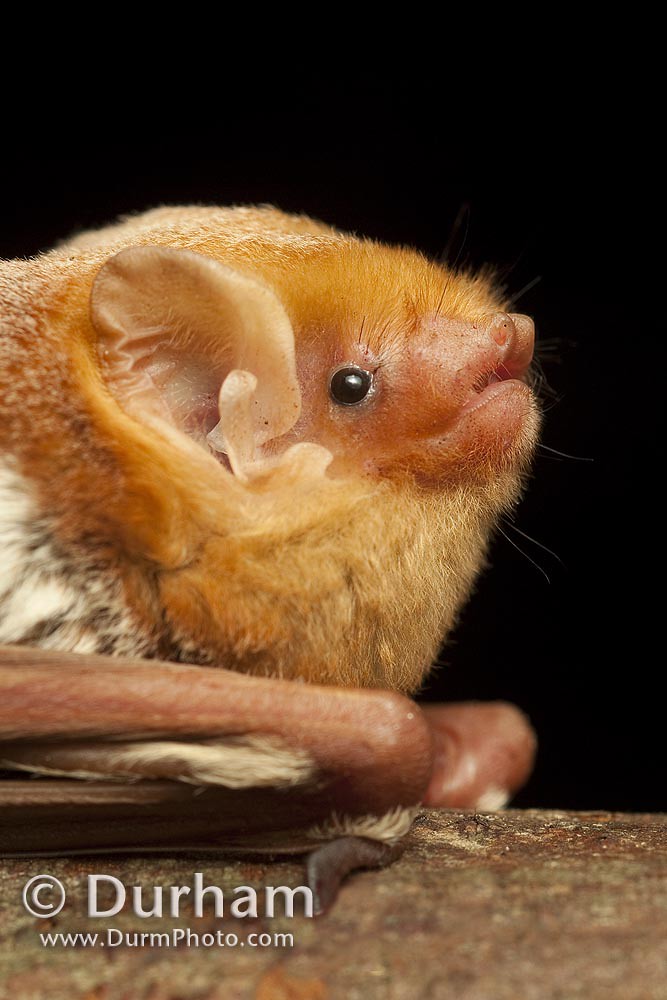
portrait of an eastern red bat (Lasiurus borealis)
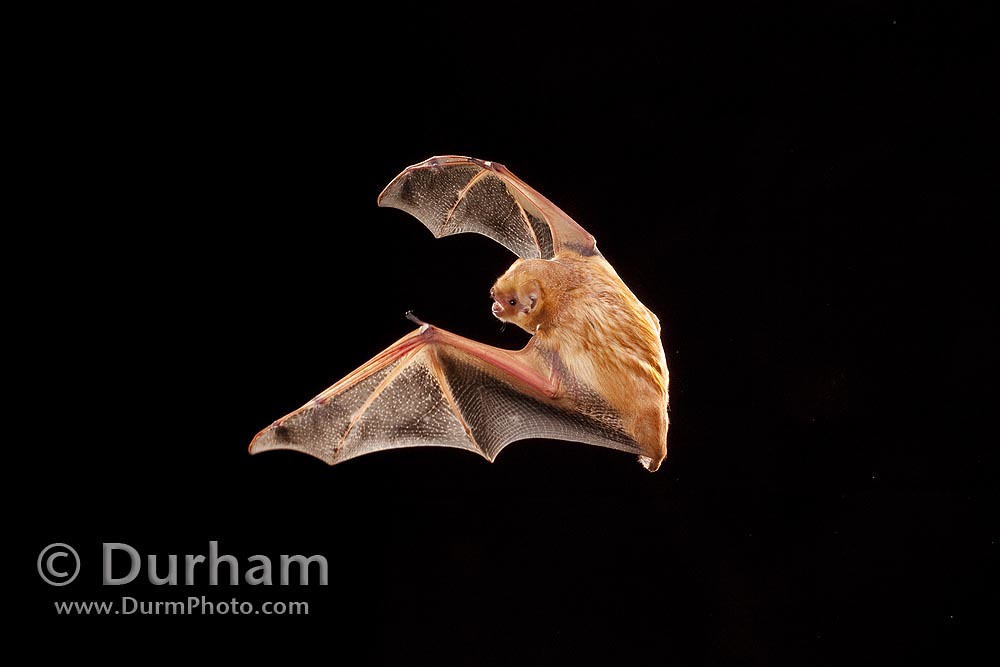
eastern red bat (Lasiurus borealis) in flight
The image of the red bat roosting on a tree limb was especially hard to obtain. This little male would land for about three seconds (just enough time to barely get into focus) and then take of before I could press the shutter!

eastern red bat (Lasiurus borealis) roosting on a tree limb

portrait of an eastern red bat (Lasiurus borealis)

eastern red bat (Lasiurus borealis) in flight
Sunday, January 23, 2011
Stepping Back...
And taking a deep breath.
As I get older it seems I have less time to accomplish anything, or perhaps my perception of time is shifting. This might also be because video is becoming a more prominent part of my work.
I might not have much time, but at least my time lapse work is showing some promise...
As I get older it seems I have less time to accomplish anything, or perhaps my perception of time is shifting. This might also be because video is becoming a more prominent part of my work.
I might not have much time, but at least my time lapse work is showing some promise...
Labels:
michael durham,
movie,
oregon high desert,
time lapse
Subscribe to:
Comments (Atom)
Sites I read
Details About Me
- OregonWild
- Portland, Oregon, United States
- Husband, Father, Student Of Natural History, Photographer
